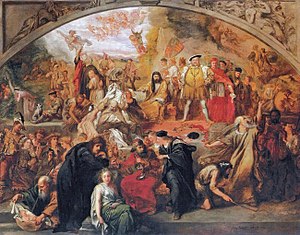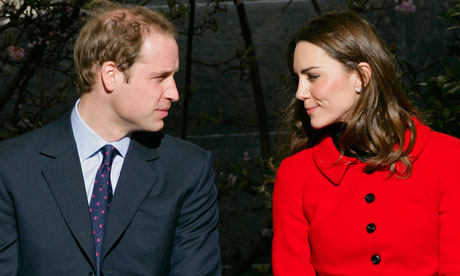Kyon Ziaan kaar banun, sood framosh rahoon?
Fikr-e-farda na karum, mahw-e-ghum-e-dosh rahoon,
Naale bulbul ke sunoon, aurhama tan gosh rahoon,
Hamnawa main bhi koi gul hoon ke khamosh rahoon?
Jurrat aamoz miri taab-e-sakhun hai mujhko,
Shikwa Allah se khakam badahan hai mujhko.
Ai Khuda shikwa-e-arbab-e-wafa bhi sun le,
Khu gar-e-hamd se thora sa gila bhi sun le.
Thi tau maujood azal se hi tiri zaat-e-qadim,
Phool tha zeb-e-chaman, par na pareshan thi shamim;
Shart insaaf hai, ai, sahib-e-altaf-e-amim,
Boo-e-gul phailti kis tarah jo hoti na nasim?
Hum se pahle tha ajab tere jahan ka manzir,
Kahin masjood the pather, kahin maabood shajar,
Khugar-e-paikar-e-mahsoos thi insaan ki nazar,
Maanta phir koi un-dekhe Khuda ko kyonkar?
Tujhko maalum hai leta tha koi naam tira?
Quwwat-e-baazoo-e-Muslim ne kiya Kaam tira!
_______________
Bas rahe the yahin salijuq bhi, toorani bhi,
Ahl-e-chin cheen mein, Iran mein sasaani bhi,
Isi maamoore mein aabad the Yunaani bhi,
Isi duniya mein Yahudi bhi the, Nusraani bhi,
Par tire naam pe talwar uthai kis ne,
Baat jo bigri huri thi who banaai kis ne?
_______________
The hameen ek tire maarka aaraaon mein!
Khushkion mein kabhi larte, kabhi dariyaon mein,
Di azaanen kabhi Europe ke kaleesaaon mein,
Kabhi Africa ke tapte hue sahraaon mein.
Thi na kuchh teg zani apni hakumat ke lieye,
Sar ba-kaf phirte the kya dahar mein daulat ke lieye?
_______________
Qaum apni jo zar-o-maal-e-jahan par marti,
But faroshi ke iwaz but shikni kyon karti?
Naqsh tauheed ka har dil pe bithaya hum ne,
Zer-e-khanjar bhi yeh paigham sunaya hum ne.
Tu hi kah de ke ukhara dar-e-Khyber kis ne,
Shaher qaiser ka jo tha us ko kiya sar kis ne?
_______________
Tore makhluq khudawandon ke paikar kis ne?
Kaat kar rakh diye kaffaar ke lashkar kis ne?
Aa gaya ain laraai mein agar waqt-e-namaz,
Qibla roo ho ke zamin bos hui qaum-e-Hejaz,
Ek hi saf mein khare ho gaye mahmud-o-Ayaz,
No koi banda raha aur no koi banda nawaz.
_______________
Banda-o-sahib-o-muhtaaj-o-ghani ek hue,
Teri sarkar mein pahunche tau sabhi ek hue.
Mehfil-e-kaun-o-makaan mein shar-o-shaam phire,
Mai-e-tauheed ko lekar sift-e-jam phire.
Dasht tau dasht hain, darya bhi na chhore hum ne,
Bahr-e-zulmaat mein daura diye ghore hum ne.
_______________
Safah-e-dahar se baatil ko mitaya hum ne,
Nau-e-insaan ko ghulami se chhuraya hum ne,
Tere kaabe ko jabeenon se basaya hum ne,
Tere Quraan ko seenon se lagaya hum ne.
Phir bhi hum se yeh gila hai, ke wafadar nahin,
Hum wafadar nahin, tu bhi tau dildar nahin!
_______________
Rahmaten hain tiri aghiyar ke kashaanon par,
Barq girti hai tau bechare Musalmaanon par!
Yeh shikait nahin, hain un ke khazane maamur,
Nehin mehfil mein jinhen baat bhi karne ka shaoor,
Qahar tau yeh hai ke kafir ko milen hoor-o-qasoor,
Aur bechaare Musalmaan ko faqt waada-e-hoor!
_______________
Taan-e-aghiyaar hai, ruswai hai, nadaari hai,
Kya tere nam pe marne ka iwaz khwari hai?
Hum tau jeete hain ke duniya mein tira naam rahe,
Kahin mumkin hai saqi na rahe, jaam rahe?
Teri mehfil bhi gai, chahne walw bhi gaye,
Shab ki aahen bhi gaien, subah ke nale bhi gaye,
_______________
Dil tujhe debhi gaye, apna sila le bhi gaye,
Aa ke baithe bhi na the, ke nikaale bhi gaye.
Aae ushaaq, gaye waada-e-farda lekar,
Ab unhen dhoond chirag-e-rukh-e-zeba lekar!
Dard-e-Laila bhi wohi, Qais ka pahlu bhi wohi,
Nejd ke dasht-o-jabal mein ram-e-aahoo bhi wohi,
_______________
Ishq ka dil bhi wohi, husn ka jaadoo bhi wohi,
Ummat-e-Ahmed-e-Mursil bhi wohi, tu bhi wohi,
Phir yeh aazurdagi-e-ghair-sabab kya maani,
Apne shaidaaon pe yeh chashm-e-ghazab kya maani?
Ishq ki khair, who pehli si ada bhi na sahi,
Jaada paimaai taslim-o-raza bhi na sahi,
_______________
Kabhi hum se, kabhi ghairon se shanasaai hai,
Baat kahne ki nahin, tu bhi tau harjaai hai.
Ahd-e-gul khatam hua, tut gaya saaz-e-chaman,
Ur gaye dalion se zamzama pardaaz-e-chaman.
Ek bulbul hai ke hai mahw-e-tarannum ab tak,
Us ke seene mein hai naghmon ka talatam ab tak.
_______________
Qumrian shaakh-e-sanober se gurezaan bhi huin,
Pattian phool ki jhar jhar ke pareshan bhi huin;
Who purani ravishen bagh ki weeran bhi huin,
Daalian parahan-e-barg se uriaan bhi huin.
Qaid-e-mausim se tabiat rahi aazad uski,
Kaash gulshan mein samjhta koi faryaad uski.
_______________
Chaak is bulbul-e-tanha ki nawa se dil hon,
Jaagne wale isi baang-e-dara se dil hon.
Yaani phir zinda naye ahd-e-wafa se dil hon,
Phir isi bada-e-deereena ke pyaase dil hon.
Ajmy khum hai tau kya, mai tau Hejaazi hai miri,
Naghma Hindi hai tau tya, lai tau Hejaazi hai miri.



































